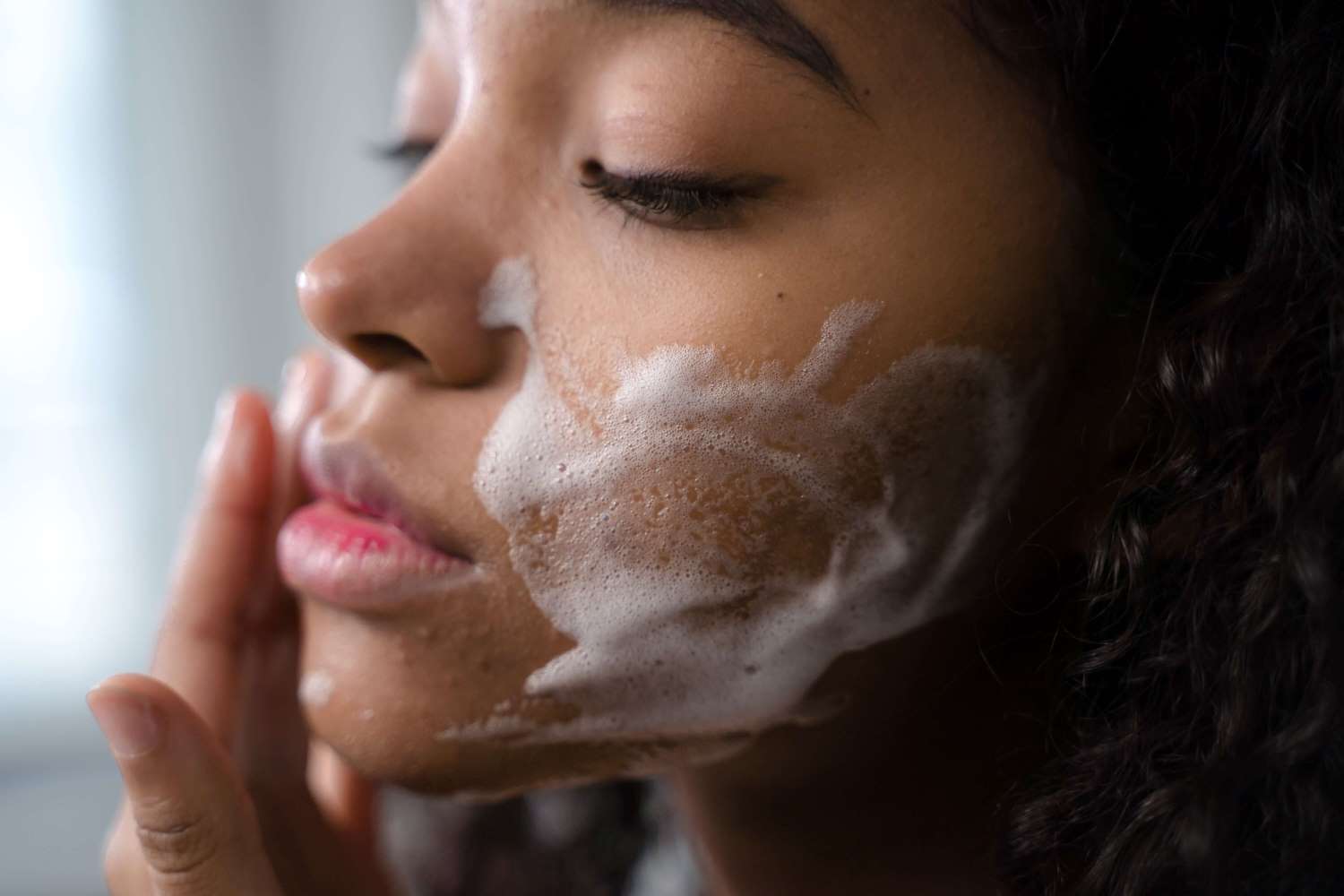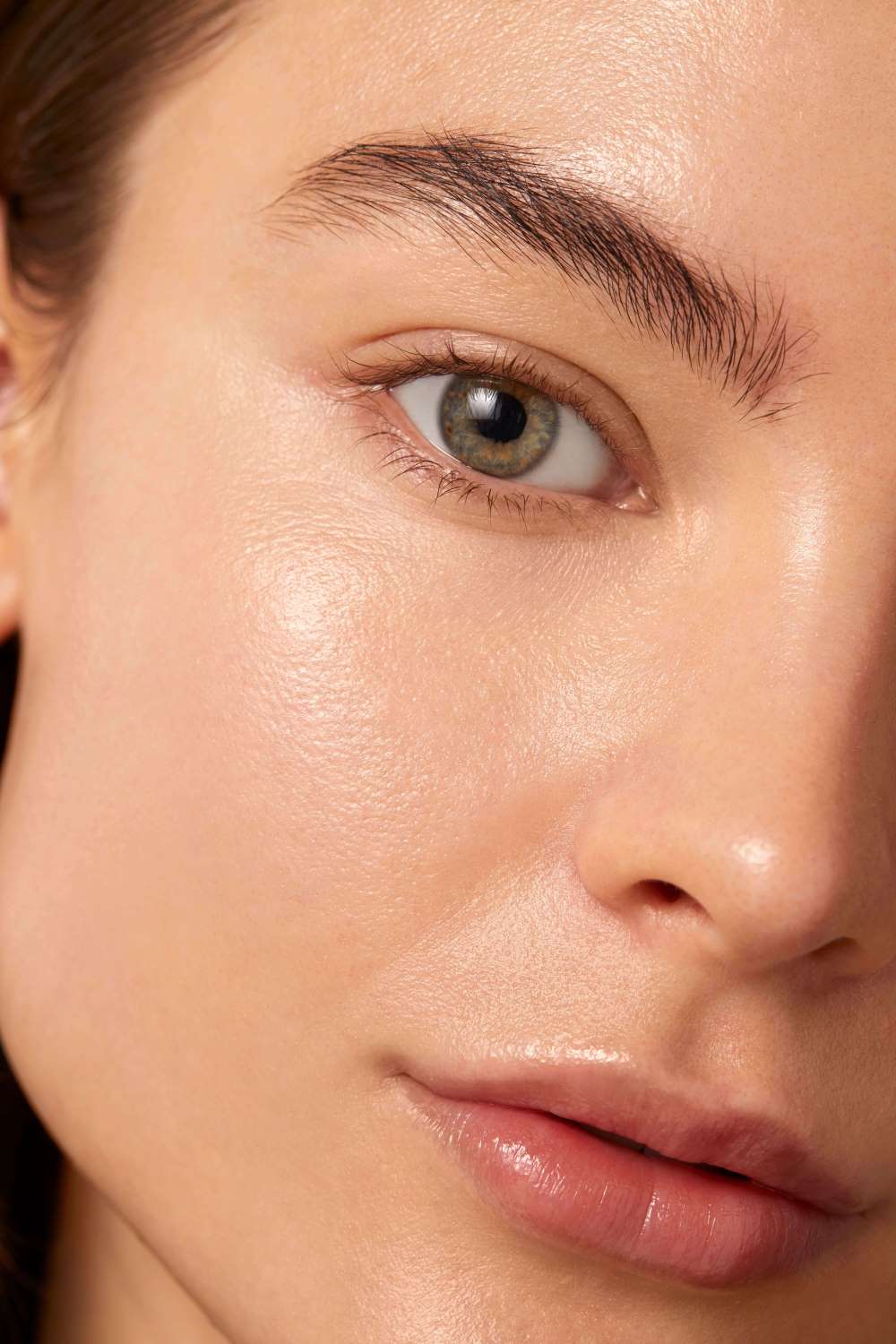Has your skin suddenly become dry and sensitive? If so, your skin’s barrier may be impaired. The skin barrier is the outermost layer of skin that locks moisture in and keeps external threats out. Also known as the stratum corneum, it is made up of keratin and lipids that form a brick wall-like structure over your skin.
Despite having a robust architecture, the skin barrier is susceptible to damage. Many factors, ranging from sun exposure to harsh skincare products, can erode this defensive layer. When weakened, water quickly evaporates and environmental irritants easily attack your skin. The result? Dehydrated skin that looks dull and inflamed.
Fortunately, a damaged barrier can be rebuilt. Below are 8 ways to protect and restore your skin’s barrier:
1. Apply Gentle Cleansers

Cleansing is crucial to maintain healthy skin. Washing your face removes impurities to help your skin function at its best. Conventional cleansers, however, remove more than just dirt. Most face washes are formulated with harsh surfactants that strip your skin of its natural oils. These oils form the glue that binds the cells of your skin barrier. When eliminated, the barrier breaks down.
To maintain a healthy skin barrier, stay away from facial cleansers that contain soap or sulfates. Soap-free face washes, like the Senté Daily Soothing Cleanser, gets rid of environmental debris and makeup without disrupting your skin’s barrier. In addition to clearing away dirt, our face wash also contains a natural lipid complex to restore the skin barrier after cleansing.
2. Go Easy on Exfoliation

When done right, exfoliation can give you smoother, brighter skin. But many of us are overdoing it with the exfoliation. Exfoliating too much can wear away the skin barrier. Even worse, mechanical exfoliants like abrasive scrubs and rough brushes tear the skin. This recurring injury causes premature skin aging.
Exfoliation is key to radiant skin, but it should be done properly. If you want to restore a healthy skin barrier and achieve a luminous glow, use mild chemical exfoliants once a week. Unlike physical exfoliants that manually buff away the top layer of skin, chemical exfoliants dissolve dead skin cells. The dead cells then shed on their own without causing any harm to the barrier.
3. Keep Your Skin Hydrated

Your skin needs water to perform its essential functions. When the barrier is damaged, moisture escapes from your skin and leaves the deeper layers dehydrated. Without sufficient water, your skin can’t work properly. Studies have found that dry conditions impair the skin’s cellular and molecular processes, slowing down healing and regeneration.
To restore the skin barrier, you must keep your skin hydrated. Hydrate your skin twice a day with products that contain hyaluronic acid. Hyaluronic acid is a naturally occurring sugar molecule that can hold 1,000 times its own weight in water. When applied to the skin, it attracts and retains water in the skin to help it achieve optimal health.
4. Reinforce With Ceramides

Among the variety of lipids found in the skin barrier are ceramides. Ceramides are fatty acids that are naturally present in the stratum corneum. They make up 30% to 40% of the skin’s outermost layer. The skin’s ceramide content decreases with age, weakening the integrity of the barrier. This leaves your skin drier and more prone to irritation.
A UC San Francisco study has revealed that ceramide-rich moisturizers can strengthen the structural integrity of the skin barrier. If you want to restore your skin barrier, look no further than Senté Dermal Repair Ultra-Nourish cream. This award-winning, ceramide-packed formulation is clinically proven to boost skin barrier function within two weeks of use.
5. Look for Niacinamide

You’re probably already familiar with this popular ingredient. Niacinamide is a form of vitamin B3. This water-soluble nutrient is commonly added to skincare products because it can deliver plenty of benefits. Along with reducing skin discoloration, niacinamide also stimulates keratin and ceramide production, which are essential components of a healthy skin barrier.
Niacinamide is one of the best active ingredients you can find to restore the skin’s barrier. Many studies have found that niacinamide skincare products can improve barrier function within four to eight weeks of use. To make the best use of this ingredient, make sure your skincare product contains at least 2% niacinamide. Apply twice a day to achieve the best results.
6. Avoid Hot Water

Who doesn’t love the soothing feel of hot water? Taking a shower or washing your face in steaming water is one of the greatest pleasures of life. But all good things have their downsides. Hot water melts away the fatty acids, cholesterol, and ceramides that make up the skin barrier. When eliminated, your skin is left exposed and vulnerable to damage.
To protect and restore your skin barrier, you should stay away from hot water. Always wash your face with lukewarm water to preserve its lipid barrier. If you absolutely must experience a hot shower, try to limit it to no more than 10 minutes. And once you’re done washing, pat your face dry instead of rubbing it to keep the skin barrier intact.
7. Protect From the Sun

You already know the sun’s rays cause premature skin aging. But did you know unprotected sun exposure can also dehydrate and increase skin sensitivity? The sun’s ultraviolet light damages skin cells. When injured, your cells can’t produce the proteins and lipids needed to maintain a healthy skin barrier. This undermines the quality of the barrier, leading to dry, sensitized skin.
No matter the season of the year, you should wear sunscreen every time you head outdoors. Yes, that includes snowy winter days. Wearing sun protection year-round is vital to restoring the skin barrier. Make sure your sunscreen is at least SPF 30 and offers broad-spectrum sun protection. Opt for mineral sunscreens as they’re safer and less irritating.
8. Include Heparan Sulfate Analog in Your Skincare

No matter what you do, your skin’s barrier will weaken with age. The decline of heparan sulfate plays an important role. Heparan sulfate (HS) is a naturally occurring molecule that helps reduce inflammation. Inflammation disrupts normal cellular processes, making your skin unable to repair itself or function properly. This deteriorates the integrity of your skin barrier over time.
To improve barrier quality, you must replenish your skin’s HS levels. Senté is the only company in the world that has developed a version of HS that can be absorbed by the skin. Our heparan sulfate analog (HSA) molecule is clinically proven to restore a healthy skin barrier. In one study, the Senté Dermal Repair Cream was shown to decrease skin sensitivity after two weeks of use.
Strengthen Your Skin Barrier With Senté
Having an intact dermal barrier is necessary for healthy skin. But aging and environmental stressors degrade barrier quality. The good news is that a damaged barrier can be reversed. With a healthier lifestyle and quality products, you can restore your skin’s barrier. Shop Senté patented skincare products to strengthen your skin within weeks.
The views or external links featured on this blog represent the opinions of their respective contributors and may not necessarily reflect the position of Sente. All content is provided for informational/educational purposes and is based on personal experiences, observations, or research. While every effort is made to ensure accuracy, Sente makes no representations or warranties about the completeness, reliability, or accuracy of the information presented. The information and opinions shared on this blog do not constitute medical advice. Readers are encouraged to independently verify information and should consult a qualified healthcare professional for diagnosis and treatment of any medical condition.



